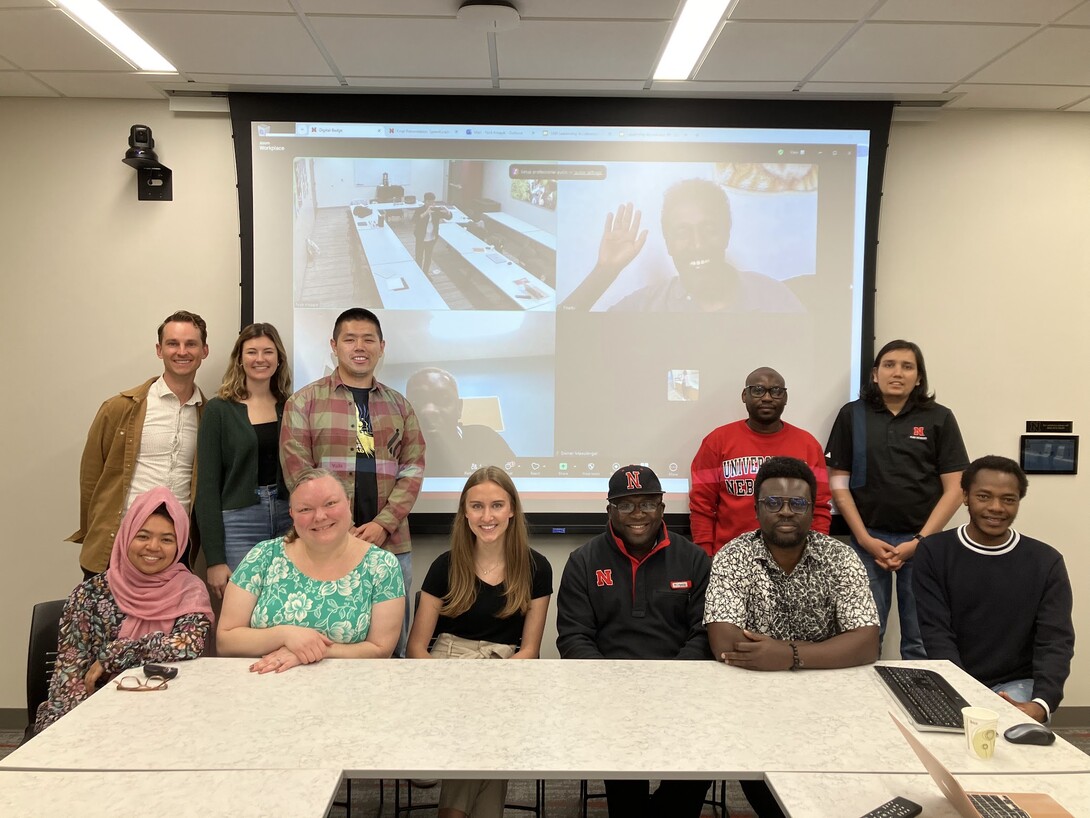
The University of Nebraska-Lincoln launched the Graduate and Professional Student Leadership Accelerator Pilot Program this February. ALEC student Nick Knopik created the program as a part of his doctoral degree.
Many graduate students go into their program wanting to become leaders, but due to busy schedules with research and work, they oftentimes do not have the opportunity to do so. The Graduate and Professional Student Leadership Accelerator Pilot Program allows students to gain leadership opportunities during their degree and aims to give students this opportunity to do so.
Nick’s main thought process when building the program was that most students want to become leaders and are looking for motivation or inspiration. However, he wanted to change that idea, starting instead with the “action step” of creating and leading. This approach also gives graduate students an opportunity for some experiential learning, with a reflective practice at the end of the program.
The four-month program allows students to strengthen their skills in five different categories: Assessment, Analysis, Facilitate, Program/Launch Plan, and Evaluation. Students have a check-in meeting once a month to collaborate and ask questions pertaining to their topic.
In just the last four months, students have created writing workshops to enhance academic writing, developed seminars to enhance collaboration and support between departments, and led peer mentoring programs for fellow graduate programs.
“I believe students will benefit from this program,” Knopik said, “because by the time they have gone through the leadership accelerator they will have developed a program, facilitated a program, and will have a tangible experience to put on their CV.”
Tom Burkey, a professor of the Animal Science Department, believes this program really helps students strengthen their skills to plan, become resilient, be proactive, and become good managers as well as develop skills to delegate, along with many other skills.
Students already have knowledge of their field of study due to their degree, and this pilot project allows them to gain supplemental leadership skills as graduate students.
“CASNR students are very resilient, and this program allows students to gain leadership to be prepared to be impactful leaders and contributors in their field,” said Burkey, who will serve as interim dean of the College of Agricultural Sciences and Natural Resources starting on June 1.
While this is the program's first year, Burkey and Knopik both have high hopes for the future. Knopik believes the program has a bright future, and he is excited to continue improving the program. He wants to be able to create one of the best programs possible within the Institute of Agriculture and Natural Resources and CASNR.
While the program continues, Burkey believes there is an “opportunity to include more students over time, to try and create a culture where students feel comfortable stepping up in leadership opportunities.” Additionally, one of the key goals Burkey would like to see as an outcome of the program is “student-driven leadership within the departments.”
Overall, Knopik hopes that the students within the program will be able to walk away with something tangible from their graduate career. The Graduate and Professional Student Leadership Accelerator Pilot Program aligns with the CASNR strategic framework to provide meaningful professional development opportunities for graduate and professional students, complementing their academic training. But it also does something more: It allows students to leave with a tangible experience to put on their CV.
Students that participated in the Graduate and Professional Student Leadership Accelerator Pilot Program:
- Nyasha Chipunza
- Zhaocheng Xiang
- Daniel Adama
- Fikadu Alemayehu
- Jayna Ghose
- Ally Pachunka
- Taiwo Dele-Osibanjo
- Brett Hilbers
- Deogratias Musoke
- Olabode Ekerin
- Diviner I M Baah
- Nawaraj Dulal
- David Kihoro Sirengo
- Katie Campbell
- Sumaiya Tabassum







